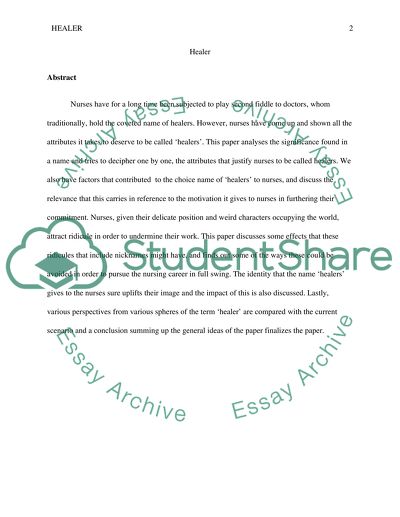Cite this document
(“Choice and Relevance of the Name Healer to Refer Nurses Research Paper”, n.d.)
Retrieved de https://studentshare.org/nursing/1392136-healer-choice-and-relevance-of-the-name-healer-to-refer-nurses
Retrieved de https://studentshare.org/nursing/1392136-healer-choice-and-relevance-of-the-name-healer-to-refer-nurses
(Choice and Relevance of the Name Healer to Refer Nurses Research Paper)
https://studentshare.org/nursing/1392136-healer-choice-and-relevance-of-the-name-healer-to-refer-nurses.
https://studentshare.org/nursing/1392136-healer-choice-and-relevance-of-the-name-healer-to-refer-nurses.
“Choice and Relevance of the Name Healer to Refer Nurses Research Paper”, n.d. https://studentshare.org/nursing/1392136-healer-choice-and-relevance-of-the-name-healer-to-refer-nurses.


